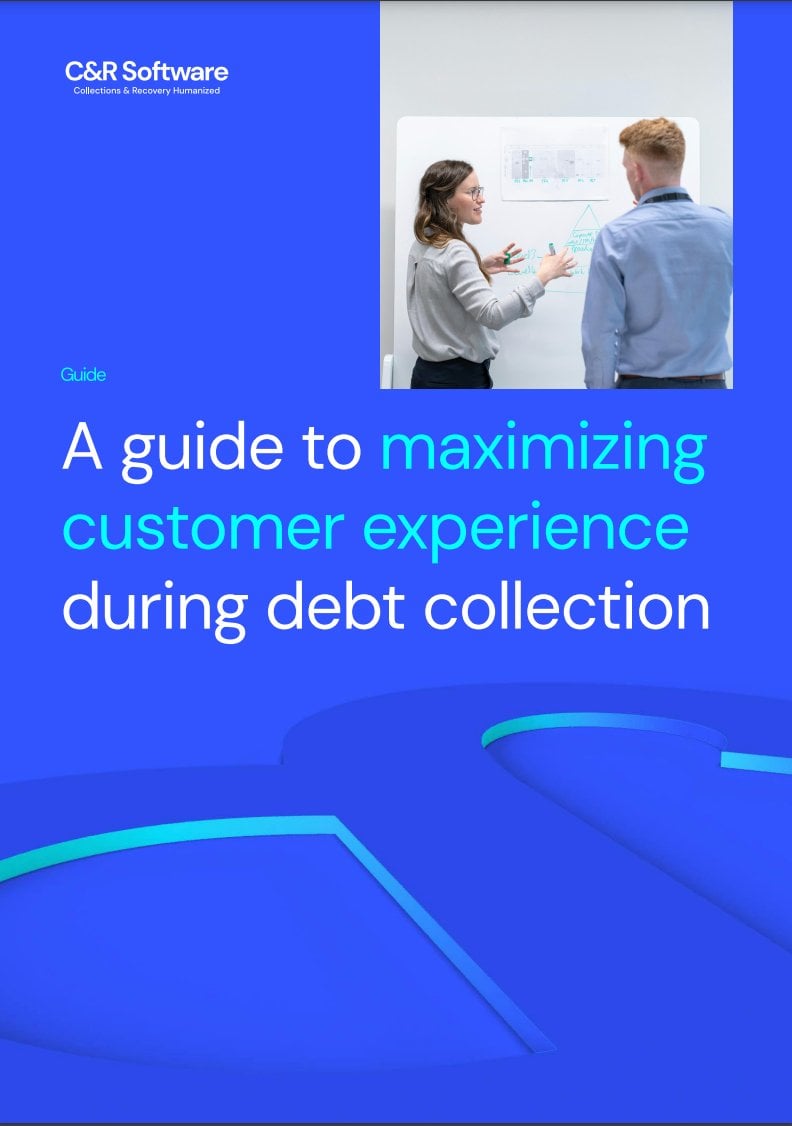Under previous legislation and regulations, the relationship between the consumer and financial businesses in the UK (and globally) has been orientated towards the latter. But with the introduction of Consumer Duty, new standards are positioned to move it to the former.
Even though the Consumer Duty only takes effect to businesses that operate in the UK, it is demonstrating a shift in customer service that global institutions are watching closely. In this article, we dive into the impact each Consumer Duty requirement has on collections and recovery, and pose solutions to make the standards beneficial to both consumers and businesses alike.
Outcome 1: Products and services
Each account that has entered collections and recovery varies almost completely to the next. One customer may be facing delinquency for the first time and be responsive to simple SMS messages, whereas another may have missed multiple payments and only respond to phone calls. In order to protect the individual, the Duty sets a precedent for businesses to provide a benefit-focused service for the individual customer, rather than applying a one-size-fits-all approach that only benefits a fraction of accounts. This will require businesses to pay greater attention to the individual consumer rather than a database of accounts, which could result in a loss of efficiency if not performed properly.
Outcome 2: Price and value
The intricacies of payment offers depend upon the entire situation of customers; how many times have they missed payments? Is it a result of unforeseen events? Is there a level of emotional vulnerability affecting their ability to pay? Understanding these different factors that result in customer delinquency directly informs the correct payment offer that will lead to a resolution. This is why the Consumer Duty sets a new standard of providing the right price and value of offers that benefits individual customers, rather than unnecessarily high interest rates for example. To ensure compliance, businesses must be able to manage their accounts in line with the individual factors that influence delinquency.
Outcome 3: Consumer understanding
In order for a customer to choose the right payment plan/offer for them, they need a clear understanding of the factors and variables of their financial situation. The Consumer Duty states that it is the responsibility of the financial firm to ensure that customers have this understanding, and must provide them with access to the necessary information if not. Rather than recommending offers without sufficient explanation, businesses must now be certain that consumers understand why each offer is recommended. If they do not, businesses risk providing the wrong treatment path that lacks a resolution and breaching compliance.
Outcome 4: Consumer service
From the beginning of accounts entering the collection and recovery process to resolving their debt and reaching financial health, there are a multitude of stages which vary in length between each account. Consumer Duty requires businesses to provide a consistent and high level of service at each of these stages with complete transparency. This ranges from replying to customers’ queries within a certain time period, to providing a consistent level of advice from beginning to end. To ensure compliance and a high level of service, businesses need to place a focus on the quality of the customer journey as well as the reliability of communications.
Solutions to minimize the impact of the Duty and humanize your processes
Providing the right service for individual customers
In order to fulfill the products and services requirement of the Consumer Duty, you need a platform that incorporates omnichannel communications at each stage of the customer journey. Fulfilling the contact preference of your customers opens a reliable channel of communication that can then be utilized to collect key account characteristics and information. From this information, you can better understand the individual customer and provide a service that suits their needs.
Payment offers that benefit individual customers
To understand the right price and value of an offer for individual accounts, you need to be able to distinguish the key customer characteristics that lead to customer delinquency. By utilizing AI and ML tools, you can compare customer characteristics such as account lifetime, missed payments and outstanding balance against historical data. This will provide you with reliable risk profiles on each customer on their likelihood to pay, which can then be used to assign treatment paths and payment plans that will likely lead to beneficial outcomes, such as financial health.
Ensuring customers can make educated decisions
To ensure your customers have access to all the necessary information at each stage of the collections process, it needs to be centralized as a Single Source of Truth (SSoT). This describes a platform that brings together important data in one place enriching your customer records with up-to-date, live, representative information. With a foundation of SSoT, you can then utilize omnichannel communications chat-bots to provide customers with key information when they need it. This will strengthen their understanding of the process, and provide self-service capabilities based on their own confidence and knowledge.
Having a consistent, high-level of service at each stage of the customer journey
By integrating all of the above factors into a highly configurable and singular platform, you can provide your customers with a high-quality service at each stage of their journey. A holistic approach that utilizes omnichannel communications, AI-powered tools and chat-bot technology ensures a range of benefit-focused outcomes for your customers without sacrificing efficiency. Workflows and ML capabilities can automate factors that ensure Consumer Duty compliance, leaving your team with time to communicate with customers and provide guidance where needed. It ticks all four boxes of the Duty’s benefit focused requirements, letting you focus on helping your customers reach financial health.
Utilize a holistic platform that ensures compliance at each stage of collections and recovery
Whether you operate in the UK or outside, Consumer Duty provides a focus on customer service that transcends simple compliance. It enhances the relationship you have with your customers, increasing retention and enhancing your collections performance.
C&R Software’s Debt Manager is an industry leading platform that allows you to orchestrate powerful, customer-centric workflows that provide a great experience, allowing you to treat each customer uniquely and engage with them using omnichannel collections approaches. Not only does it offer the customer service features to be compliant with Consumer Duty, but it enables businesses that operate in other jurisdictions to provide the same benefit focused outcomes for their customers.
To find out more about how Debt Manager can help you fulfill the four benefit-focused outcomes of the Duty and humanize your collections process, contact us today.
.jpg)
.jpg)



-Jan-20-2026-02-48-49-6447-PM.png?width=352&name=operationalize%20AI%20(15)-Jan-20-2026-02-48-49-6447-PM.png)

-Jan-28-2026-02-16-48-0429-PM.png?width=352&name=operationalize%20AI%20(14)-Jan-28-2026-02-16-48-0429-PM.png)